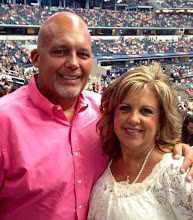“Leadership is not about me, but it starts with me.”
I begin most of my leadership talks with that statement. Before I can lead others, I must thoroughly understand myself. I must examine and challenge myself to make sure that I am worthy of imitation.
The reflective mindset requires a leader to gain an understanding of their personal leadership philosophy and style - how they present themselves to others, their strengths and weaknesses, and their current leadership skills. This is achieved through a thorough, reflective, and often uncomfortable self examination.
A useful tool for developing the reflective mindset is the development of a Life-Map. The best way to begin the process is to do a placing exercise by creating a time line of your life, from birth to the present. Above the time line record the major social and political events of your life. For example, I was born in 1960, so my time line includes JFK, Rock-n-Roll, Civil Rights Movement, Walking on the Moon.
Below the line, record the key personal events and relationships of your life. Some things to consider are:
Educational experiences
Family situations
New job/career directions
Promotion/special projects
Interactions with a significant individual
Personal crises
Once the placing exercise is done, you now have the raw data for developing your Life-Map.
The Life Map exercise extends the placing exercise by asking you to reflect on how these events impacted your personality, values, worldview and leadership style.
It may be helpful to label or classify these events based on the meaning and significance each event held for you. Here are some suggested categories:
Milestone events are characterized as a means to an end. They are checkpoints in your life course.
Confirmational events affirm or disconfirm some particular attribution of your professional self, organizational or career reality.
Decisional events represent the decisions or choices you actively make. These events represent a conscious choice and require a high level of involvement and commitment. These decisions are based on a belief that they will result in a positive outcome that is congruent with the individual’s hopes and aspirations.
Transformational events shake the entire fabric of an individual’s life. Frequently they touch the very core of your being by challenging your life purpose and result in a transformation of many aspects of your life. These events provide the catalyst for profound change in direction, self-perception and worldview.
In addition, you should look for “crucible events.” Crucible events are defined as trials that rupture the status quo by coming upon us unexpectedly. They force us to answer fundamental questions about our identity, values, purpose, and priorities.
Taken together as a whole, these exercises should help you identify the meta-narrative of your life. These are the stories about the events that shaped your view of the world and that help you make sense of the otherwise apparent randomness of life (Andy Stanley, The Principle of the Path).
Leadership is not about me, but it starts with me. I need to look deep inside of myself to understand my worldview, my values, my style. Its not easy and sometimes its painful.
Allow yourself the discomfort of doing this important work.


No comments:
Post a Comment